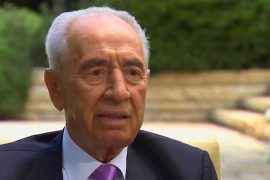1) At the Tablet magazine Yair Rosenberg discusses ‘The Palestinian Vaccine Fiasco’.
“On Wednesday, an Israeli plane landed in Seoul carrying 700,000 Pfizer coronavirus vaccines. The batch was part of a strategic swap between the Jewish state and South Korea. […]
The exchange is a win-win for Israel and South Korea—and a lose-lose for the Palestinian people, who were originally supposed to receive these very vaccines in the exact same arrangement with Israel. But thanks to a bad faith anti-vax campaign—enabled by feckless political figures, inept international media coverage, and partisan activism—the deal was capsized shortly after it was announced.
This public health disaster deserves a lot more attention than it has received, because it reveals the pathologies that continue to prevent progress in the region, and because, quite simply, it’s going to get people killed.”
2) At WINEP Anna Borshchevskaya and Andrew J. Tabler have been ‘Unpacking Russia’s Syria Strategy’.
“Sometime before July 10, the UN Security Council will vote on whether to extend the annual mandate for cross-border assistance into Syria, which now passes through a lone outpost at Bab al-Hawa. Securing this extension is essential from a humanitarian standpoint, but keeping the border open matters equally for reasons of stability, given the fragile ceasefire in Idlib. Looming over the process is the strategic mischief of Moscow, which has repeatedly played various actors in Syria off each other to secure its own geostrategic and economic interests and to keep the Assad regime in power. The Kremlin, to the latter end, has reliably vetoed Security Council resolutions that would check the Syrian regime, claiming falsely that such moves would facilitate Western incursions in the country.”
3) Jonathan Spyer analyses how ‘Iran Digs Deep in Hollowed out Syria’.
“Significant western-aligned Arab states, along with Russia, are seeking to normalize the international position of the Assad regime. This would involve the ending of the isolation of the regime, its return to international fora, and the gradual easing of sanctions.
The problem is that while these efforts to ‘normalize’ Assad’s status are making some headway on the international level, the situation on the ground in Syria is far from normal. Rather, the Syrian regime is profoundly weak. Foreign powers maintain powerful military and political structures on Syrian soil, controlling territory without any requirement to seek the permission of the nominal government in Damascus for their activities. […]
The current direction of events points to the prospect of a kind of ‘Lebanonization’ or ‘Iraqification’ (if that is a word) of Syria. That is, the emergence of a situation in which a weak government in name only exists and is accepted internationally. Beneath this flimsy structure, a powerful, independent Iranian political-military capacity will have freedom of action, control significant territory, and be able to use the nominal central government as a useful cloak for its activities.”
4) At the Gatestone Institute Khaled Abu Toameh explains ‘Why Palestinian Leaders Are Really Inciting Violence Against Israel’.
“The Palestinian Authority (PA), facing growing criticism over the death of Palestinian anti-corruption political activist Nizar Banat, is trying to redirect the anger on the Palestinian street toward Israel.
Although Israel had nothing to do with the brutal killing of Banat, steering anger toward it is an old tactic used by Palestinian leaders for many years; whenever your people are angry with your corruption and repressive measures, you tell them that it is all Israel’s fault.”






No surprise in the PA declining the offer of vaccines by Israel – it is more interested in scoring points than looking after the health of their inhabitants – and naturally the BBC uses the incident to slag off Israel.